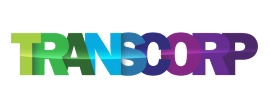

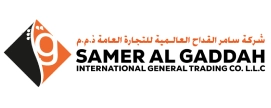


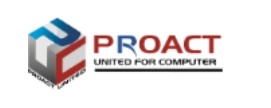
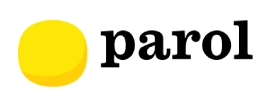
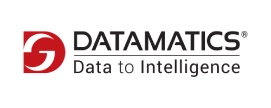
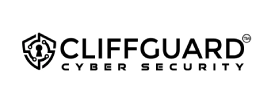
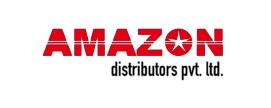
ISO 13485 certification in Abu Dhabi is a globally recognized standard for quality management systems (QMS) specifically for the medical device industry. It ensures that manufacturers and suppliers meet stringent requirements for designing, developing, producing, and servicing medical devices. Achieving ISO 13485 certification in Abu Dhabi helps companies to demonstrate their commitment to quality, regulatory compliance, and continuous improvement. It enhances product safety, increases customer satisfaction, and facilitates access to international markets. Certification requires documented processes, risk management, and rigorous quality control systems. It also involves regular audits by accredited certification bodies to ensure ongoing compliance and effectiveness of the QMS.
What is the process for obtaining ISO 13485 certification in Abu Dhabi?
The process for obtaining ISO 13485 certification in Abu Dhabi typically involves the following steps:
ISO 13485 Gap Analysis: Conduct an initial assessment to identify any gaps between current practices and ISO 13485 requirements in Abu Dhabi.
Plan and Design: Develop a quality management system (QMS) tailored to meet the specific needs of your organization and ensure compliance with ISO 13485.
ISO 13485 Document Processes: Create necessary documentation, including quality policies, procedures, work instructions, and risk management plans.
ISO 13485 Training and Implementation: Train employees on the new QMS processes and implement the system across the organization.
ISO 13485 Internal Audit: Perform an internal audit to check for compliance and effectiveness of the QMS. Identify areas for improvement.
Certification Audit: Engage an accredited certification body to conduct an external audit of your QMS. The auditor will verify that your processes meet ISO 13485 standards.
What is an ISO 13485 audit in Abu Dhabi?
An ISO 13485 audit in Abu Dhabi is a systematic evaluation conducted by a third-party certification body to assess a company’s quality management system (QMS) for compliance with the ISO 13485 standard. The ISO 13485 audit consists of two main stages:
- Stage 1 (Documentation Review): The auditor reviews the organization’s QMS documentation to ensure it aligns with ISO 13485 standards. This includes policies, procedures, work instructions, and risk management plans.
- Stage 2 (On-Site Audit): The auditor conducts a thorough on-site review, inspecting the organization’s processes, practices, and controls. They evaluate how effectively the QMS is implemented, ensuring that it complies with ISO 13485 and regulatory requirements.
During the audit, any non-conformities or areas for improvement are identified, and corrective actions are required before certification is granted.
Our Services
- ISO Certification
- ISO 9001 Certification
- ISO 14001 Certification
- ISO 45001 Certification
- ISO 22000 Certification
- ISO 17025 Certification
- ISO 27001 Certification
- ISO 13485 Certification
- ISO 17025 Certification
- ISO 27701 Certification
- ISO 20000-1 Certification
- ISO 27032 Certification
- ISO 22483 Certification
- ISO 26000 Certification
- ISO 22301 Certification
- ISO 42001 Certification
- ISO 27017 Certification
- ISO 27018 Certification
- ISO 50001 Certification
- ISO 27014 Certification
- ISO 29990 Certification
- ISO 37001 Certification
- ISO 41001 Certification
- ISO 21001 Certification
- ISO 55001 Certification
- ISO 28000 Certification
- ISO 22716 Certification
- ISO 15189 Certification
1:1
Guided Platform Implementation
100%
Audit
Success
10x
Faster than
manual methods
200+
Integrations and
powerful APIS
>90%
Process
automation
What are the key advantages of obtaining ISO 13485 certification in Abu Dhabi?
Regulatory Compliance: ISO 13485 certification in Abu Dhabi helps businesses comply with local and international regulations, ensuring adherence to medical device safety and quality standards required by authorities like the UAE Health Authority and global regulators.
Enhanced Product Quality: The standard promotes a structured approach to quality management, helping businesses maintain consistent product quality and reduce defects, thereby increasing customer satisfaction.
Access to Global Markets: ISO 13485 registration in Abu Dhabi is recognized worldwide, making it easier for companies in Abu Dhabi to access international markets and expand their customer base.
Risk Management: ISO 13485 implementation in Abu Dhabi effective risk management practices, helping companies proactively identify and mitigate potential risks associated with medical device manufacturing.
Overall, ISO 13485 certification in Abu Dhabi in delivering safe, high-quality medical devices, ensuring regulatory compliance, and fostering growth in both local and global markets.
What are the typical costs associated with ISO 13485 certification in Abu Dhabi?
The costs associated with ISO 13485 Certification in Abu Dhabi can vary depending on several factors, including the size of the organization, its existing quality management systems, and the level of external support required. Below are the typical components involved in the certification process:
Size of the Organization: Larger organizations generally incur higher costs due to the increased complexity and scale of their operations.
ISO 13485 Training Costs:Employee training is essential for ensuring that staff understand the requirements of ISO 13485.
Internal Resources:Organizations will need to allocate internal resources to prepare documentation, conduct internal audits, and ensure that existing processes are updated to align with ISO 13485 requirements.
Ongoing Maintenance: After certification, ongoing efforts are required to maintain compliance with ISO 13485.
These costs represent an investment in the business’s commitment to product quality, safety, regulatory compliance, and market access.
Major Steps for Implementing ISO 13485 Certification in Abu Dhabi
ISO 13485 implementation in Abu Dhabi involves a systematic approach to developing a quality management system (QMS) tailored to the medical device industry.
Conduct a Gap Analysis: For ISO 13485 certification in Abu Dhabi gap analysis helps identify areas for improvement and provides a clear roadmap for aligning existing systems with the standard.
Develop a Quality Management System (QMS):Create a QMS that meets the ISO 13485 requirements, including documenting policies, procedures, work instructions, and risk management processes.
Train Employees:Provide training to employees on ISO 13485 standards, quality management principles, and their specific roles in ensuring compliance.
Conduct Internal Audits:Perform internal audits to assess the effectiveness of the QMS.These audits ensure that the organization is ready for the final external certification audit.
Engage a Certification Body:Select an accredited certification body to conduct the formal ISO 13485 audit.
By following these Basic steps, businesses can successfully implement ISO 13485 certification in Abu Dhabi .
Product Certification
Other Certification
Request a Call Back
Major Documents Required for ISO 13485 Implementation in Abu Dhabi
ISO 13485 Implementation in Abu Dhabi requires specific documentation to demonstrate compliance with the standard’s quality management system (QMS) requirements.
Quality Manual:This is a comprehensive document that outlines the organization’s commitment to quality management, its structure, and the processes that comply with ISO 13485 requirements in Abu Dhabi.
Procedures and Work Instructions: Detailed documents outlining the specific processes for key functions such as document control, production, testing, and product recall. These procedures ensure consistency in operations and compliance with the standard.
Risk Management Plan: A critical document that identifies potential risks related to medical device production and outlines mitigation strategies. It ensures that risk management is embedded throughout the product life cycle.
ISO 13485 Internal Audit Reports: Documentation of regular internal audits that assess the effectiveness and compliance of the QMS. Any non-conformities or areas for improvement should be addressed in corrective action plans.
How can ISO 13485 consultants in Abu Dhabi help businesses?
ISO 13485 consultants in Abu Dhabi play a crucial role in helping businesses in the medical device industry achieve and maintain certification. They provide expert guidance through every step of the ISO 13485 implementation process, ensuring compliance with regulatory requirements and quality standards. ISO 13485 Consultants in Abu Dhabi help businesses by conducting a gap analysis to identify areas needing improvement, developing a tailored Quality Management System (QMS), and assisting in the creation of essential documentation such as quality manuals and procedures. They also offer employee training to ensure staff understand the standard and their responsibilities.
They manage the relationship with certification bodies, arranging for the Stage 1 and Stage 2 audits and helping businesses respond to audit findings.
Reasons for Selecting Levon Ventures for ISO 13485 Certification in Abu Dhabi, UAE
Levon Ventures is a leading ISO 13485 consultancy firm in Abu Dhabi, UAE, specializing in ISO 13485 certification for medical device manufacturers and suppliers. Here are the key reasons businesses choose Levon Ventures for their ISO 13485 certification needs.With a track record of successful ISO 13485 implementation across various businesses in Abu Dhabi and the UAE, Levon Ventures has earned a reputation for delivering results and ensuring compliance with international standards.
By choosing Levon Ventures as a ISO 13485 consultant in Abu Dhabi businesses can rely on a trusted partner to help them navigate the complexities of ISO 13485 certification, ensuring high-quality products, regulatory compliance, and access to global markets.
Our Services
Stay Connected with latest relevant
#ISO13485AbuDhabi, #ISO13485CertificationAbuDhabi, #ISO13485ConsultantsAbuDhabi, #ISO13485CertificationProcessAbuDhabi, #ISO13485CertificationCostAbuDhabi, #ISO13485CertificationRequirementsAbuDhabi, #ISO13485ImplementationServicesAbuDhabi, #ISO13485AccreditedCertificationAbuDhabi, #ISO13485ForSmallBusinessesAbuDhabi, #ISO13485StandardsAbuDhabi, #ISO13485ConsultancyServicesAbuDhabi, #ISO13485CertificationCompaniesAbuDhabi, #HowToGetISO13485CertificationAbuDhabi, #ISO13485DocumentationServicesAbuDhabi, #ISO13485AuditServicesAbuDhabi, #ISO13485QualityManagementCertificationAbuDhabi, #ISO13485ComplianceAbuDhabi, #ISO13485InternalAuditAbuDhabi, #ISO13485RenewalAbuDhabi, #ISO13485RegistrationAbuDhabi, #ISO13485CertificationExpertsAbuDhabi, #ISO13485CertificationProcessStepsAbuDhabi, #ISO13485CertificationConsultancyFeesAbuDhabi, #ISO13485OHSMScertificationAbuDhabi, #ISO13485ConsultingFirmsAbuDhabi, #ISO13485CertificationOnlineAbuDhabi
Frequently asked questions
ISO 13485 is an international standard for quality management systems (QMS) specifically designed for the medical device industry.
- Improved Product Quality
- Risk Management
ISO 13485 consultants in Abu Dhabi help businesses implement quality management systems, ensure regulatory compliance, conduct audits, provide training, and guide through certification, enhancing product quality, safety, and operational efficiency.
The timeline can vary depending on the organization’s size, complexity, and readiness for implementation. Smaller businesses may achieve certification more quickly.
The cost can vary including consultancy, certification body fees, training, and annual surveillance audits. The final cost depends on the size and scope of the organization.
ISO 13485 certification in Abu Dhabi is not legally mandatory for all businesses, but it is essential for companies involved in manufacturing or distributing medical devices. Certification demonstrates compliance with regulatory requirements, enhances product quality, and provides access to global markets.
Industries in Abu Dhabi that benefit the most from ISO 13485 certification include medical device manufacturing, healthcare, pharmaceuticals, contract manufacturing, medical laboratories, and suppliers/distributors of medical devices, ensuring quality and regulatory compliance.
Yes, small businesses in Abu Dhabi can significantly benefit from ISO 13485 certification. It helps improve product quality, ensures regulatory compliance, enhances customer trust, and opens up access to global markets, ultimately increasing competitiveness and operational efficiency.
Documentation required for ISO 13485 certification in Abu Dhabi includes a quality manual, procedures, risk management plan, internal audit records, training records, device master records, and corrective/preventive action (CAPA) documentation.
To get started with ISO 13485 certification in Abu Dhabi, conduct a gap analysis, develop a quality management system, and engage a consultant.




